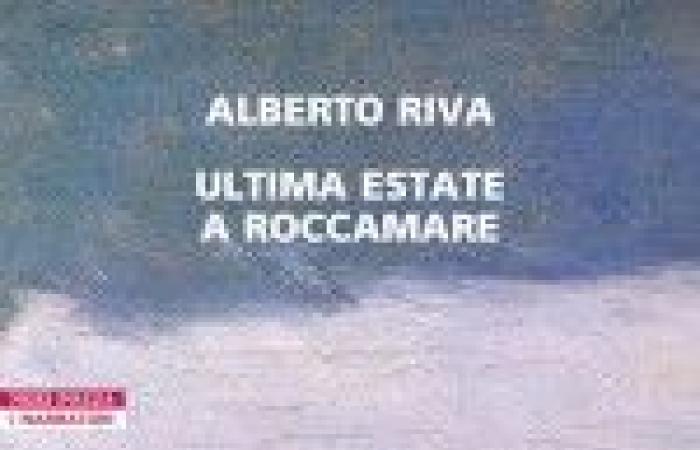Lower Tyrrhenian Sea. It’s a bright day at the end of July, Rosetta Loy is eighty-six years old and she claims to write because she likes it, and that’s it. She still writes every day, if she doesn’t write she’s a little unhappy. In the distance, among the branches of the old olive trees, you can see the beach which culminates in the famous Tiberius Cave. Shortly before, you spoke about her memory: you doubt that you have given in too much, in your books, to her recall. At various times, in almost regular cycles, the names of Cesare Garboli and her husband Peppe Loy return in her words. Both now long gone. Her love with Peppe, brother of the director Nanni, is told in the book that should have been the first chapter of her memoirs, Forse. The continuation of her never arrived: she ends in 1957, the year in which her father dies and her first daughter is born. Instead, what will be her last book has arrived, on her history with Garboli, simply entitled Cesare, who was essential in her work, a very severe critic. In Sperlonga, where she came with Natalia Ginzburg in 1975, the wind has now risen. Loy also got up to go to the bedroom, where, on the floor, there are Garboli’s books: she loved her husband very much, but at a certain point she fell in love with someone else. Now that you have finished this book on Caesar, what will you write? She’s nothing, she’s old, very old. She belongs to a world that no longer exists… It is to her that the author thinks back when traveling to Tuscany, and to that 6 September 1985 in which Esther Calvino found her husband lying on the deck chair, unconscious. He was working on his American lessons…
The homes of writers and artists seem to retain, more than others, the imprint of those who occupied them: in the secrecy of their rooms or in the coolness of a shaded garden, unforgettable works have taken shape and life and now, as if time had suspended its course, they still vibrate with their presence and speak to us. The writer and journalist Alberto Riva accompanies us to one of these magical places and invites us to enter. We are in Maremma, in the pine forest of Roccamare – the first one you come across coming from Follonica, after leaving Punta Ala and Punta delle Rocchette behind. Here, between the Sixties and Eighties, some of the most prominent exponents of Italian cultural life of the time – Italo Calvino and Pietro Citati, Carlo Fruttero and Furio Scarpelli… – had found a home, especially for summer holidays, giving life to a memorable season, made up of friendships and correspondence: Federico Fellini, Mario Tobino, Milan Kundera, Carlo Cassola, Georges Simenon, Nico Orengo, Franco Lucentini, Cesare Garboli and many others. Riva is a generous and pleasantly surprising narrator: he demonstrates great confidence in controlling the plot, the most fertile element of which is the ability to stratify multiple narratives and timelines. The structural complexity of the text is given first and foremost by the presence of countless subplots which, however, do not diminish the power and narrative emphasis of the central story, on the contrary, they demand our attention. Stories and memories of family and friends – the dialogues, interviews, notes, funny anecdotes, quotes, references to events that, in some way, involved places and people – are often interrupted to be resumed later, refracting and amplifying their emotional strength. In this book where the invention of the story, the returns of memory and the intrusion of events act like a vortex, the reader, far from being disoriented, is able to appreciate the charm of a research also imbued with autobiographical nuances. The notion of “place”, “space”, “geography” therefore takes on a particular meaning: it indicates a home of the spirit, where intelligence, art, talent, genius have settled to be born, live for a few months or for a lifetime. Even dying. Describing the special reciprocal relationship of an environment with the literary universe of a writer, as well as with his life, is the successful project of this erudite, enlightened, at times curious work, which makes these pages an invitation to reading as for travel.





